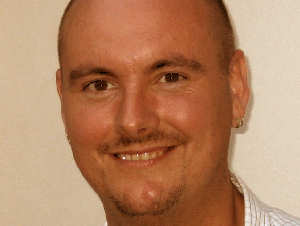Call to be generous with our forgiveness
 At the end of my last message I said I would show in this message how one of our biggest increases in scientific understanding also provides a very good reason why Jesus said we ought to forgive everyone their sins. Increased knowledge of the universe has, I think, given us good reason to be generous with our forgiveness, whether we are Christian or not.
At the end of my last message I said I would show in this message how one of our biggest increases in scientific understanding also provides a very good reason why Jesus said we ought to forgive everyone their sins. Increased knowledge of the universe has, I think, given us good reason to be generous with our forgiveness, whether we are Christian or not.
Is it theoretically possible to predict every event in the entire universe? Theoretically yes, practically, no. For fairly obvious reasons the mathematical models we use for predicting systems within the universe are not adequate for predicting every event in the entire universe – the only way to do that would be to create a simulated model for computational prediction, but that would consist of all the computations in the universe, and would thus be a large as the universe itself.
So for example, with this simulated model of the universe the toss of a coin can be predicted with 100% accuracy from the initial conditions sitting on a person's finger and thumb because our predictive power would show the exact force applied, where the thumb makes contact with the coin, the air temperature, and every preceding event that we could use for prediction. Of course any prospect of our being asked to predict a coin toss beforehand shows that a huge system like our universe that follows a completely rigid algorithm contains things that could be accurately predicted by that algorithm if one had access to all the information that goes into the algorithm.
To broaden this point, practically this means that every event in the universe is preceded by causes beyond our scope of identification. Given what we know about how nature works, even if a man cannot find it in his heart to believe that Jesus is God, I believe that any attempts to work towards improving oneself and being a person who loves others and treats them with as much kindness and grace as possible will find himself recognising more and more ‘Divine’ things in goodness. And given what I just said about computation and causality being beyond the scope of our knowledge, I believe that the scientific models that zoom in on physical interactions between man and the outside world suggest that our partly deterministic world calls out for our love and forgiveness at all times; for a man is after all susceptible to nature’s conflicts and her vicissitudes, and with a whole host of precursors and our susceptibility to the butterfly effect, nature interacts with consciousness in ways that are probably beyond the materialistically-oriented test/refute science.
I remember being struck by Jesus’ words that we must forgive those who wrong us, and forgive them again, and again, even every day if need be (Matthew 18:22). Was I supposed to be able to find no trouble forgiving people like Hitler and Stalin and various others whose crimes appalled me? Apparently I was compelled to challenge myself to break through some barriers of natural resistance. I believe that Jesus had two things in mind when He called for compassion and forgiveness – challenges that seem to beggar belief when we think about some of the worst crimes committed by men and women. In the first place, the fact that both the physics and the biochemistry of nature play out in such random and often uncontrollable ways means that it ought to be easy to find empathy; and in the second place, our knowledge of the true extent of any (un)consciously constructed idea, thought or desire is limited to the extent that we only know things about one another to the degree that a complex nature makes them accessible. I may see Mrs. Jones lose her temper without much provocation, but I don’t have access to every precursory event and thought that caused her reaction, so in judging her harshly I may well be (and probably would be) in no real position to judge.
I believe that at the heart of Jesus’ message of forgiveness in Matthew 18:22 is recognition that nature demands our forgiveness because we do not possess the knowledge to know all the preceding factors in any event. Thus along with our tapping into what we believe to be the absolutes, our best endeavours are underlain with a subjectivism and a relativism and a contextualism and a scepticism - all of which form a fundamental part of who we are. Christ’s ‘Let he who is without sin cast the first stone’ may well be as much about a mandatory compassion towards the human condition as it is anything else – a compassion that recognises how utterly dwarfed we are by nature’s vicissitudes and conflicts, and that although we know right from wrong our predicaments are to some extent a reflection of how nature, and more locally, our culture and social influences act upon us. Thus our attempts at turning our own conceptions of good into something that relates to Christ’s challenging teachings involve our attaining the best type of objectivity in a largely subjective swamp which tends to define us not so much by what is ‘out there’ as a viable beacon for our moral attentions, but instead by how man views himself in relation to the universe.
 Clearly the post-Reformation changes that have occurred and have led us to advancements in every field of science and reason are at least in some way connected to how we view ourselves in the cosmos, and to some extent human beings have done quite a poor job of carrying their faith and their theology into the new dawns of post-Enlightenment world. Some will decree that it is our advancement in science and reason that has gradually expunged theism from the picture, but I think this is a very naive view based on strawman caricatures of God and a banal counterfactual theism that completely misunderstands the world that Christ said we should work towards – a world which was never in conflict with science and reason - in fact, a world of increasing population that was going to have to work with science and reason to see that His plans came to pass.
Clearly the post-Reformation changes that have occurred and have led us to advancements in every field of science and reason are at least in some way connected to how we view ourselves in the cosmos, and to some extent human beings have done quite a poor job of carrying their faith and their theology into the new dawns of post-Enlightenment world. Some will decree that it is our advancement in science and reason that has gradually expunged theism from the picture, but I think this is a very naive view based on strawman caricatures of God and a banal counterfactual theism that completely misunderstands the world that Christ said we should work towards – a world which was never in conflict with science and reason - in fact, a world of increasing population that was going to have to work with science and reason to see that His plans came to pass.
The universe seems to show that our sin is not just our being fallen creatures unable to live up to the glory of God, but that we are in the same cosmological boat whereupon our mental structure facilitates things within a system where much of the surrounding complexity remains to us unknown factors. So the question ‘Who are we to judge?’ is true not just in a theological sense but in a naturalistic sense too. Accompanying this truth is another even more powerful truth; Jesus invites us into a relationship with Him, and for those who can’t bring themselves to believe, He works with whatever faith we have, however little, and shows us that it is not just by getting to know Him that we begin to be more like Him; it is by being more like Him that we get to know Him more. I do not believe that anyone will be successful if he waits around for proof of God to come easily into his stead and then promises to act in accordance with Christ’s teachings. The journey begins the other way round – a man acts in accordance with Christ’s teachings and then begins to see God.
The views carried here are those of the author, not of Network Norwich and Norfolk, and are intended to stimulate constructive debate between website users. We welcome your thoughts and comments, posted below, upon the ideas expressed here. You can also contact the author direct at james.knight@norfolk.gov.uk
James is a Norwich local government officer, author and Proclaimers church member in Norwich. You can access his current collections of columns here
Meanwhile, if you want to find out more about Christianity, visit: www.rejesus.co.uk